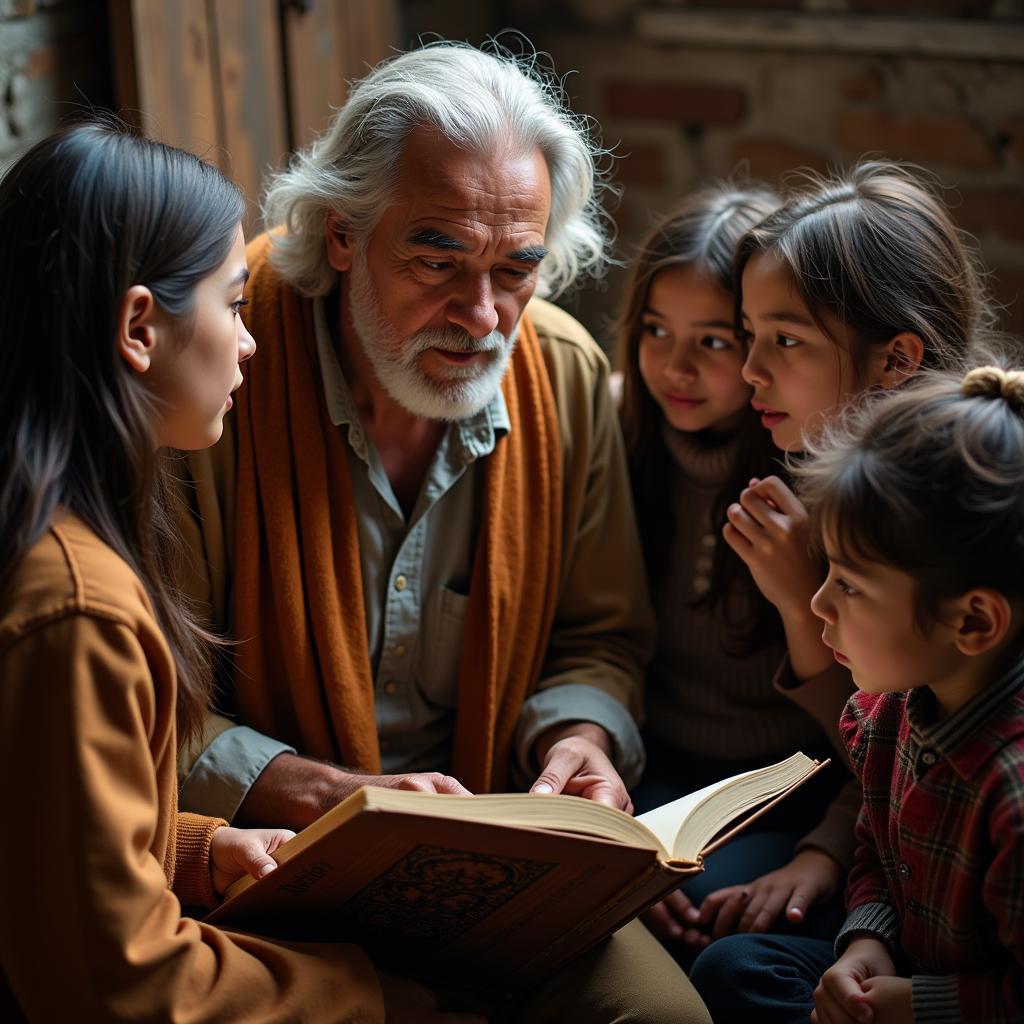African Culture vs American Culture: A Glimpse into Two Worlds
The tapestry of human experience is woven with threads of diverse cultures, each contributing its unique colors and textures. This article delves into the fascinating contrasts between African culture and American culture, exploring their fundamental values, traditions, and perspectives. From communal harmony to individual pursuits, we’ll uncover the nuances that make each culture distinct.
Collective Identity vs Individualism: The Heart of the Matter
At the core of the African worldview lies a deep sense of community. Ubuntu, a Nguni Bantu term roughly translating to “humanity towards others,” embodies this ethos. It emphasizes interdependence, cooperation, and the belief that “I am because we are.” This communal spirit is reflected in extended family structures, shared responsibilities, and a strong emphasis on consensus-building.
In contrast, American culture often prioritizes individualism. Independence, self-reliance, and the pursuit of personal goals are highly valued. While family remains important, the nuclear family structure is more prevalent, and individuals are encouraged to forge their own paths.
Time: A River or a Road?
The perception of time itself differs significantly between these two cultures. In many African cultures, time is viewed more fluidly, akin to a river. Emphasis is placed on the present moment and the cyclical nature of life. Deadlines are often flexible, and relationships are prioritized over strict schedules. This is not to say that time is not valued in Africa; rather, it is approached with a different lens.
American culture, conversely, often operates on a linear concept of time. It’s seen as a commodity to be managed efficiently, with an emphasis on punctuality, schedules, and deadlines. This future-oriented perspective drives a focus on progress and achievement.
Communication: Beyond Words
Communication styles also reveal distinct cultural nuances. African cultures often rely heavily on nonverbal cues, proverbs, and storytelling to convey meaning. Indirect communication is common, where preserving harmony and respect takes precedence over direct confrontation.
American communication tends to be more direct and explicit, favoring clear and concise language. While nonverbal cues are present, words carry significant weight, and directness is valued for its clarity and efficiency.
 Traditional African Storytelling
Traditional African Storytelling
Spirituality: A Tapestry of Beliefs
Religion and spirituality are deeply woven into the fabric of both African and American cultures. However, their expressions vary considerably. African traditional religions often embrace a holistic worldview, where spirits, ancestors, and the natural world are interconnected. Rituals, music, and dance play integral roles in spiritual practices.
While the United States is a religiously diverse nation, Christianity holds a significant presence. The emphasis often lies on individual faith and adherence to specific doctrines. There is, however, a growing interest in exploring diverse spiritual paths and practices.
Celebrating Diversity: A World Enriched
Understanding the differences and similarities between African culture and American culture fosters intercultural awareness and appreciation. It’s crucial to recognize that these are broad generalizations and within each culture exists a rich tapestry of diversity.
Exploring cultural nuances deepens our understanding of the human experience and allows us to engage with the world from a more informed and empathetic perspective.
FAQs: African Culture vs. American Culture
1. Is all of Africa culturally similar?
No, Africa is a vast continent with over 50 countries, each boasting unique cultures, languages, and traditions. Generalizing about “African culture” would be inaccurate and a disservice to the continent’s incredible diversity.
2. How does the concept of family differ between African and American cultures?
Family plays a central role in both cultures but is often structured differently. African cultures tend to have broader definitions of family, including extended relatives and community members. American culture often emphasizes the nuclear family unit.
3. Are there any similarities between African and African American cultures?
While connected by historical ties, it’s important to distinguish between African and African American cultures. African American culture has evolved over centuries within the specific context of the United States, developing its own unique traditions and expressions. However, some common threads can be observed, particularly in areas like music, dance, and storytelling, reflecting the enduring legacy of African heritage.
4. What are some tips for respectfully navigating cultural differences?
Approach interactions with genuine curiosity, active listening, and a willingness to learn. Avoid making assumptions and be open to perspectives that differ from your own. Remember that cultural understanding is an ongoing journey.
5. Where can I learn more about African and American cultures?
Immerse yourself in literature, film, music, and art from both cultures. Engage with cultural organizations and events. Travel, if possible, to experience the richness firsthand.
Remember, these are just a few starting points for understanding the fascinating complexities of African and American cultures. Further exploration awaits as we continue to bridge cultural divides and celebrate the beauty of our shared human experience.


